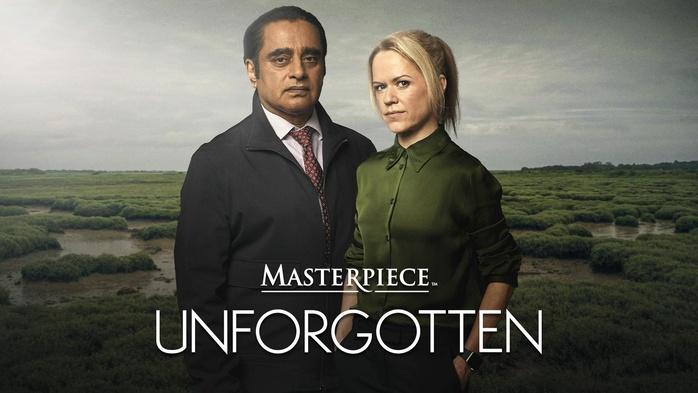Frederica Freyberg:
In agriculture market news, soybeans are trading at $10.26 a bushel today. According to Wisconsin farmers, at that price, they’re losing money. “Here & Now” senior political reporter Zac Schultz tells us this is the fallout from the Trump administration’s tariffs on China, putting Wisconsin farmers in the middle of an international trade war.
Zac Schultz:
Combines are rolling all across Wisconsin, bringing in what looks to be a good soybean harvest.
Doug Rebout:
I think it’s going to be a real good year for us on our yields.
Zac Schultz:
Doug Rebout is president of the Wisconsin Soybean Association. Along with his brothers, he farms 4200 acres of corn and soybeans in Rock County. And while his bushels per acre look good, the price per bushel has crashed over the last two years.
Doug Rebout:
The prices that we’re being offered right now aren’t covering the cost — it costs us to put it in the ground.
Zac Schultz:
The decline in soybean markets started last year but it bottomed out this this spring after Donald Trump announced tariffs on China, and China retaliated by refusing to buy U.S. soybeans.
Doug Rebout:
Historically, China has bought more soybeans from the U.S. than the rest of the world combined. And so when China doesn’t buy from us, that’s a huge impact to us.
Zac Schultz:
Rebout’s semi holds a thousand bushels of beans, and the minute he drives it off the field, those beans have now entered the international market, competing with growers in Argentina and Brazil.
Doug Rebout:
They’re growing more and more soybeans every year. They’re clearing rainforest and they’re able to provide that to China.
Andy Bensend:
The facts are, in the marketplace, our beans are cheaper than Brazil’s. So in the absence of tariff, we’re ultra competitive.
Zac Schultz:
Andy Bensend farms 3800 acres in Barron County. He says most farmers don’t have capacity to store soybeans on the farm and have few options in this environment.
Andy Bensend:
Those farmers are going to harvest the beans. They’re going to load them in the truck. If they have a bin, they’re going to put them in. If they don’t, they’re going to take them to the elevator. And when they get to the elevator, they have a couple choices. Take what’s offered or put them in the commercial storage and begin to pay a storage premium, which is so much a month.
Zac Schultz:
But there’s no guarantee prices will be higher next spring. Bensend says there’s a very narrow window for the Trump administration to fix this trade war.
Andy Bensend:
We’re running out of time. Brazil’s planting their beans. They’ll be ready for harvest next winter. And when they start making a new crop, if we don’t have ours marketed, guess what? We’re going to have a lot of beans.
Zac Schultz:
Rebout says farmers that were already overleveraged will likely go under.
Doug Rebout:
Some farmers are going to go under. There are some farms that, you know, are not going to be able to make it, and that’s very sad.
Zac Schultz:
Bensend serves on the Wisconsin Soybean Marketing Board.
Andy Bensend:
We clearly have to build other markets. And I think the biofuels thing is, is a perfect example of that.
Zac Schultz:
The federal government sets the amount of biofuels that must be blended into the nation’s fuel mix, and an increase could create domestic demand for soybeans. That would lead to a new soybean crushing facility being built in. CHS has already purchased land and has permitting in place to build an $800 million facility that could process 70 million bushels of soybeans a year for their oil.
Doug Rebout:
We have this market right here that would help our prices, because all those transportation costs are — a lot of them would be eliminated.
Zac Schultz:
Jason Sergeant is the Evansville city administrator. He says they have a signed contract with CHS to start construction next summer. They’re just waiting for CHS to confirm it will happen.
Jason Sergeant:
We have those dates in our contract, and they’re just obligated to kind of tell us when they’ve got to that next milestone post.
Zac Schultz:
In a statement, a CHS spokesperson said, “CHS is further analyzing the market and biofuel policies to make sure the right mechanisms are in place to support executing further on the investment.” Even if CHS goes forward, the plant wouldn’t come online for a few years, leaving Wisconsin farmers with 100 million bushels of beans this fall and no good place to sell them.
Donald Trump:
You know, you leave your farm to your children, and before I came along, they’d go out, they’d have to borrow money.
Zac Schultz:
Even though Trump started this trade war, Bensend and Rebout aren’t sure if this will change how farmers think about him.
Andy Bensend:
By and large, Trump is a free market person. However, he’s become a little bit protectionist with this, this tariff approach. And I think, I think we’re concerned. I think we’re very concerned because it’s affecting our livelihoods.
Doug Rebout:
You go talk to farmers. There are some farmers that love him. Some farmers that hate him. Some farmers that are a little less optimistic now.
Zac Schultz:
Combining soybeans is a dusty business. But when the dust settles from this harvest, Wisconsin farmers will be on the losing end of an international trade war, and the impact will be felt all across the state.
Andy Bensend:
So to think that it’s just the farmers’ problem is shortsighted. Agriculture is still the basis of our economy in so many ways, especially here in Wisconsin.
Doug Rebout:
It’s not just impacting us. It’s impacting our local communities because like I said, when we have those bad years and we’re not spending that money, that — the local businesses aren’t getting the money.
Zac Schultz:
Reporting from Rock County, I’m Zac Schultz for “Here & Now.”
Search Episodes

Donate to sign up. Activate and sign in to Passport. It's that easy to help PBS Wisconsin serve your community through media that educates, inspires, and entertains.
Make your membership gift today
Only for new users: Activate Passport using your code or email address
Already a member?
Look up my account
Need some help? Go to FAQ or visit PBS Passport Help
Need help accessing PBS Wisconsin anywhere?

Online Access | Platform & Device Access | Cable or Satellite Access | Over-The-Air Access
Visit Access Guide
Need help accessing PBS Wisconsin anywhere?

Visit Our
Live TV Access Guide
Online AccessPlatform & Device Access
Cable or Satellite Access
Over-The-Air Access
Visit Access Guide
 Passport
Passport






Follow Us